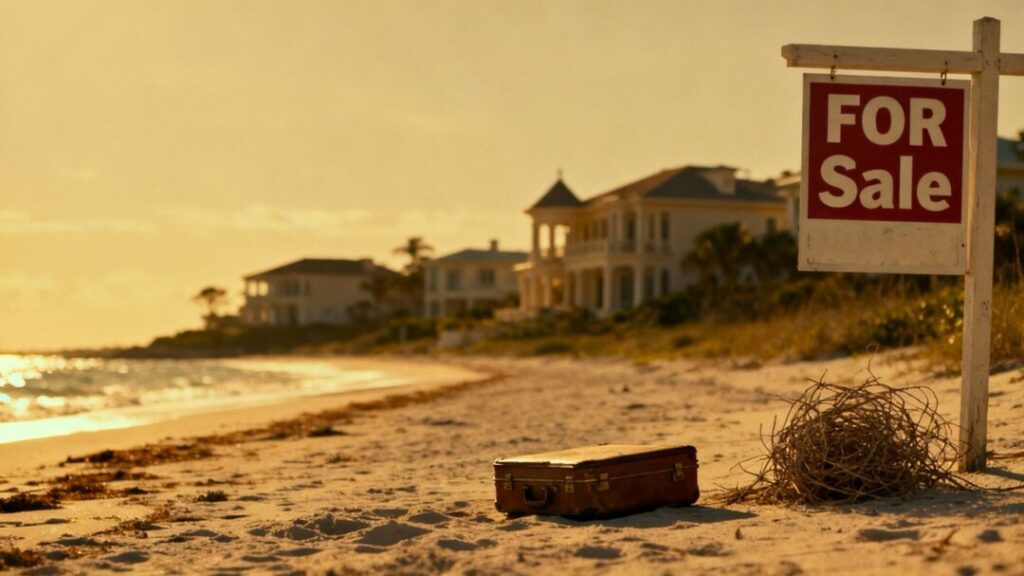Florida’s once-booming real estate market is experiencing a significant downturn as investors increasingly pull back, leading to concerns of a potential crisis. Factors such as declining affordability, rising insurance costs, and new regulations are contributing to a cooling market, with key cities seeing a sharp drop in investor purchases.
Key Takeaways
- Investor purchases have fallen significantly in Florida, with Orlando, Miami, and West Palm Beach experiencing the steepest declines.
- Rising insurance premiums, increased frequency of natural disasters, and new condo safety regulations are deterring investors.
- A surge in housing inventory has led to longer market times and a decline in rental income, further impacting investor profitability.
Investor Retreat Accelerates
Florida, long a favored destination for real estate investors due to its warm climate, lack of state income tax, and perceived affordability, is now seeing a notable shift. Redfin reports indicate that investor purchases have dropped more rapidly in Florida than in the rest of the U.S. Three of the top five metro areas with the largest declines in investor purchases are located in Florida: Orlando, Miami, and West Palm Beach. This pullback is attributed to a combination of factors, including an uncertain economy, high mortgage rates, and a noticeable decline in the state’s affordability.
Rising Costs and Regulatory Headwinds
The Sunshine State’s real estate market is grappling with a confluence of challenges. Skyrocketing insurance premiums, driven by more frequent and intense natural disasters like hurricanes, have become a major deterrent. Additionally, new legislation enacted after the Surfside condo collapse in 2021 mandates structural inspections and increased reserve funds for older buildings, leading to substantial hikes in HOA fees and special assessments. These rising costs are making homeownership, particularly in condos, increasingly untenable for many residents and less attractive for investors.
Market Slowdown and Oversupply Concerns
The influx of new construction, coupled with fewer buyers, has resulted in a significant increase in housing inventory across Florida. In January, the number of unsold homes reached a record high. This oversupply, combined with declining rental incomes in some areas, is creating a bleak outlook for investors hoping to generate profit through flipping or rental income. Experts predict a potential "big investor selloff" in 2025 as landlords face declining rents and skyrocketing operating expenses, leading to compressed profit margins and cash flow problems for those who invested during the market peak.
### Sources
- Florida real estate crisis worsens as key group pulls back investment in the state, Daily Mail.
- Florida’s Housing Market Could See ‘Big Investor Selloff’ in 2025, Newsweek.
- Tax Relief Proposed as Florida Housing Market Faces Deepening Crisis, Norada Real Estate Investments.


